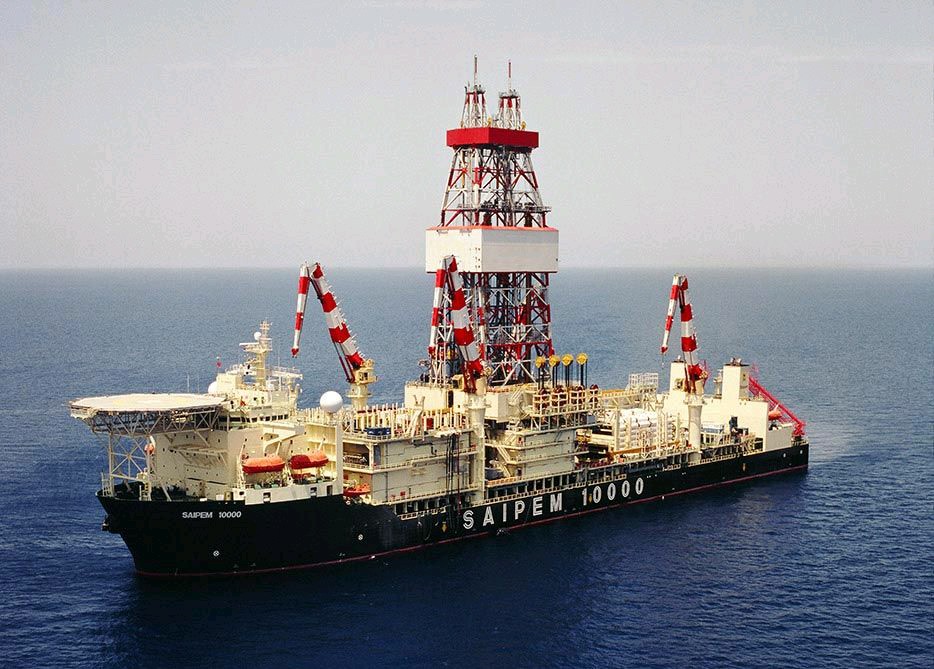Italian major Eni has announced this month a major light oil discovery (40° API) at its Baleine-1X exploration well in block CI-101 offshore Côte d’Ivoire. The company had signed the contract for the block’s license back in March 2017 and operates it with a 90% interest. This marks the third oil discovery by the company this year following Cuica in April offshore Angola and Eban in July offshore Ghana.
The Baleine prospect was drilled in water depths of about 1,200m by the Saipem 10,000 drillship and reached a total depth of 3,445m. It discovered oil in two different stratigraphic levels and will now be appraised and evaluated to assess the significant upside potential of the overall structure that extends into block CI-802, another block which was just awarded to Eni back in June 2021.
According to Eni, the potential of the discovery can be preliminarily estimated at between 1.5 and 2bn barrels of oil in place and between 1.8 and 2.4 trillion cubic feet (Tcf) of associated gas. “Along with the appraisal programme, Eni and Petroci Holding will also start studies for a fast-track development of the Baleine discovery,” the company said in a statement yesterday. Eni has been increasing its exploration portfolio in Côte d’Ivoire in recent years: it had been awarded Block CI-205 in 2017 and Blocks CI-501 and CI-504 in 2019. It is also struggling to maintain its share of African oil production and has been faced with decreasing output for several years. In Q2 this year, its oil & gas production from sub-Saharan Africa stood at about 293,000 boepd compared with 399,000 boepd in Q2 2019 and 386,000 boepd in Q2 2020.
Source: Government of Côte d’Ivoire
The opening of a new play concept in Côte d’Ivoire’s sedimentary basin is also very good news for a country where oil production has failed to meet expectations and has been dropping significantly in recent years. Crude oil production had fallen to only 20,690 barrels of oil per day (bopd) in Q1 this year, against a daily average of over 40,000 bopd back in 2016. Most of the oil produced comes from the Baobab deep-water field operated by Canadian Natural Resources (CNRL) where production started in 2005. Côte d’Ivoire remains however a strong gas producing market with good domestic off-take infrastructure from the power sector.

